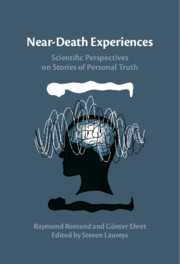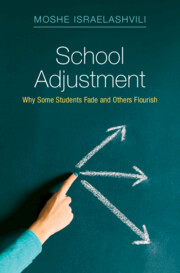Refine search
Actions for selected content:
3387640 results

Near-Death Experiences
- Scientific Perspectives on Stories of Personal Truth
-
- Published online:
- 30 August 2025
- Print publication:
- 04 September 2025

Ibn Aʿtham al-Kūfī and his Kitāb al-Futūh
- Author, Textual Tradition, and Ridda Narrative: New Edition of the Text on the Ridda
-
- Published by:
- Gerlach Books
- Published online:
- 30 August 2025
- Print publication:
- 31 March 2025

The Gulf States, Asia and the Indian Ocean
- Ensuring the Security of the Sea Lanes
-
- Published by:
- Gerlach Books
- Published online:
- 30 August 2025
- Print publication:
- 01 June 2018

The Christian Communities of Palestine from Byzantine to Islamic Rule
- An Historical and Archaeological Study
-
- Published by:
- Gerlach Books
- Published online:
- 30 August 2025
- Print publication:
- 31 January 2021

Security Dynamics of East Asia in the Gulf Region
-
- Published by:
- Gerlach Books
- Published online:
- 29 August 2025
- Print publication:
- 30 September 2014

Gulf Charities and Islamic Philanthropy in the 'Age of Terror' and Beyond
-
- Published by:
- Gerlach Books
- Published online:
- 29 August 2025
- Print publication:
- 30 March 2014

The Arabs and Islam in Late Antiquity
- A Critique of Approaches to Arabic Sources
-
- Published by:
- Gerlach Books
- Published online:
- 29 August 2025
- Print publication:
- 30 July 2014

European Muslims and their Foreign Policy Interests
- Identities and Loyalties
-
- Published by:
- Gerlach Books
- Published online:
- 29 August 2025
- Print publication:
- 30 August 2018

Political Economy of Energy Reform
- The Clean Energy-Fossil Fuel Balance in the Gulf States
-
- Published by:
- Gerlach Books
- Published online:
- 29 August 2025
- Print publication:
- 30 March 2014

Bahrain's Surviving Dynasty
- The Al Khalifa's Rulership Struggles and Successions 1783-1932
-
- Published by:
- Gerlach Books
- Published online:
- 29 August 2025
- Print publication:
- 30 June 2023

Egypt and the Gulf
- A Renewed Regional Policy Alliance
-
- Published by:
- Gerlach Books
- Published online:
- 29 August 2025
- Print publication:
- 30 September 2016

From Manners to Rules
- Advocating for Legalism in South Korea and Japan
-
- Published online:
- 29 August 2025
- Print publication:
- 07 August 2025

The Arms Trade, Military Services and the Security Market in the Gulf States
- Trends and Implications
-
- Published by:
- Gerlach Books
- Published online:
- 29 August 2025
- Print publication:
- 30 September 2016

Conflict Resolution and Creation of a Security Community in the Gulf Region
-
- Published by:
- Gerlach Books
- Published online:
- 29 August 2025
- Print publication:
- 30 September 2017

The Muslim Theology of Huzn
- Sorrow Unravelled
-
- Published by:
- Gerlach Books
- Published online:
- 29 August 2025
- Print publication:
- 30 August 2018

The Arab States of the Gulf and BRICS
- New Strategic Partnerships in Politics and Economics
-
- Published by:
- Gerlach Books
- Published online:
- 29 August 2025
- Print publication:
- 30 September 2016

Critique of Religious Thought
- English Translation of Naqd al-fikr ad-dini
-
- Published by:
- Gerlach Books
- Published online:
- 29 August 2025
- Print publication:
- 30 November 2014

School Adjustment
- Why Some Students Fade and Others Flourish
-
- Published online:
- 29 August 2025
- Print publication:
- 07 August 2025

Higher Education Investment in the Arab States of the Gulf
- Strategies for Excellence and Diversity
-
- Published by:
- Gerlach Books
- Published online:
- 29 August 2025
- Print publication:
- 31 October 2016

The Future of Labour Market Reform in the Gulf Region
- Towards a Multi-Disciplinary, Evidence-Based and Practical Understanding
-
- Published by:
- Gerlach Books
- Published online:
- 29 August 2025
- Print publication:
- 31 October 2017
